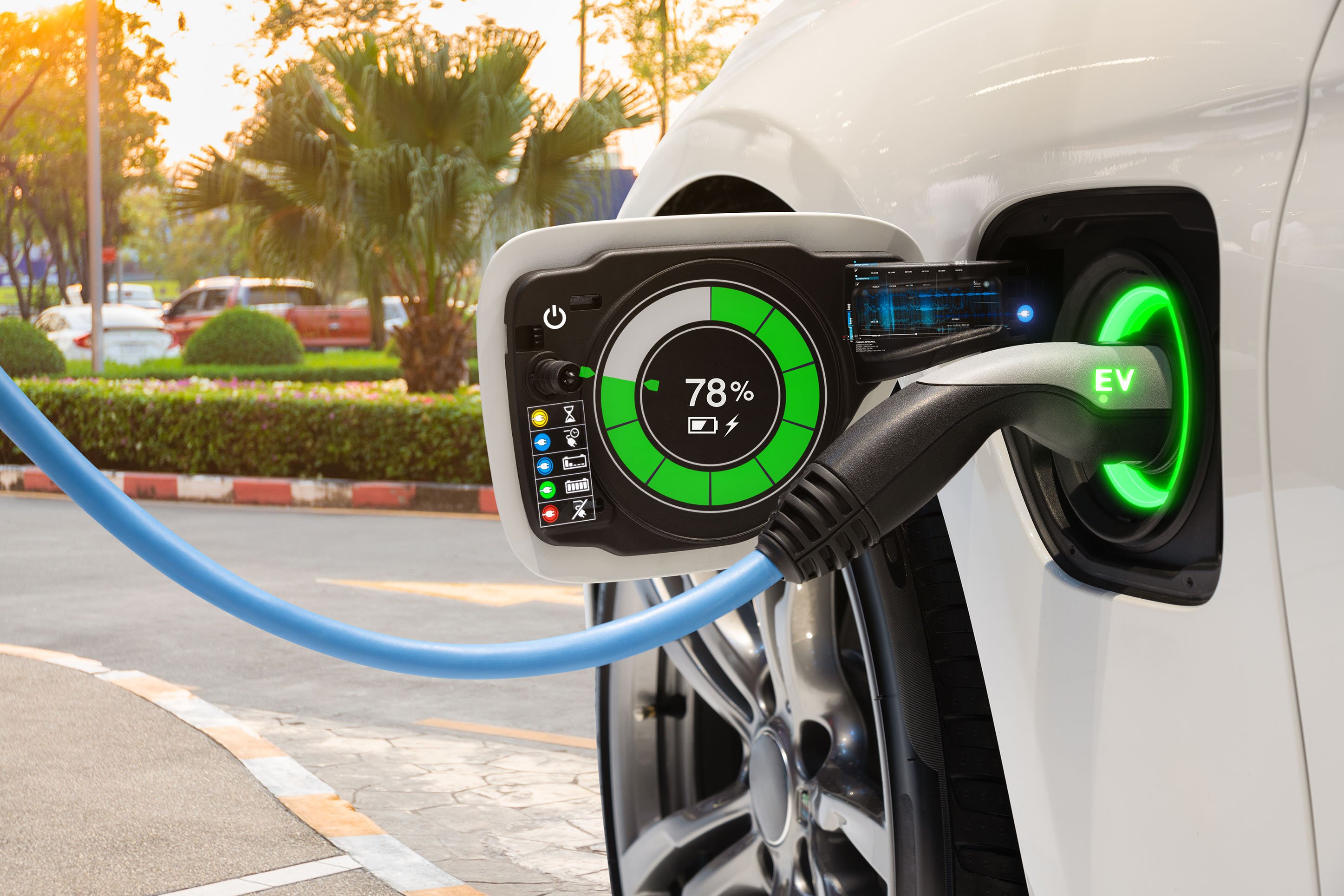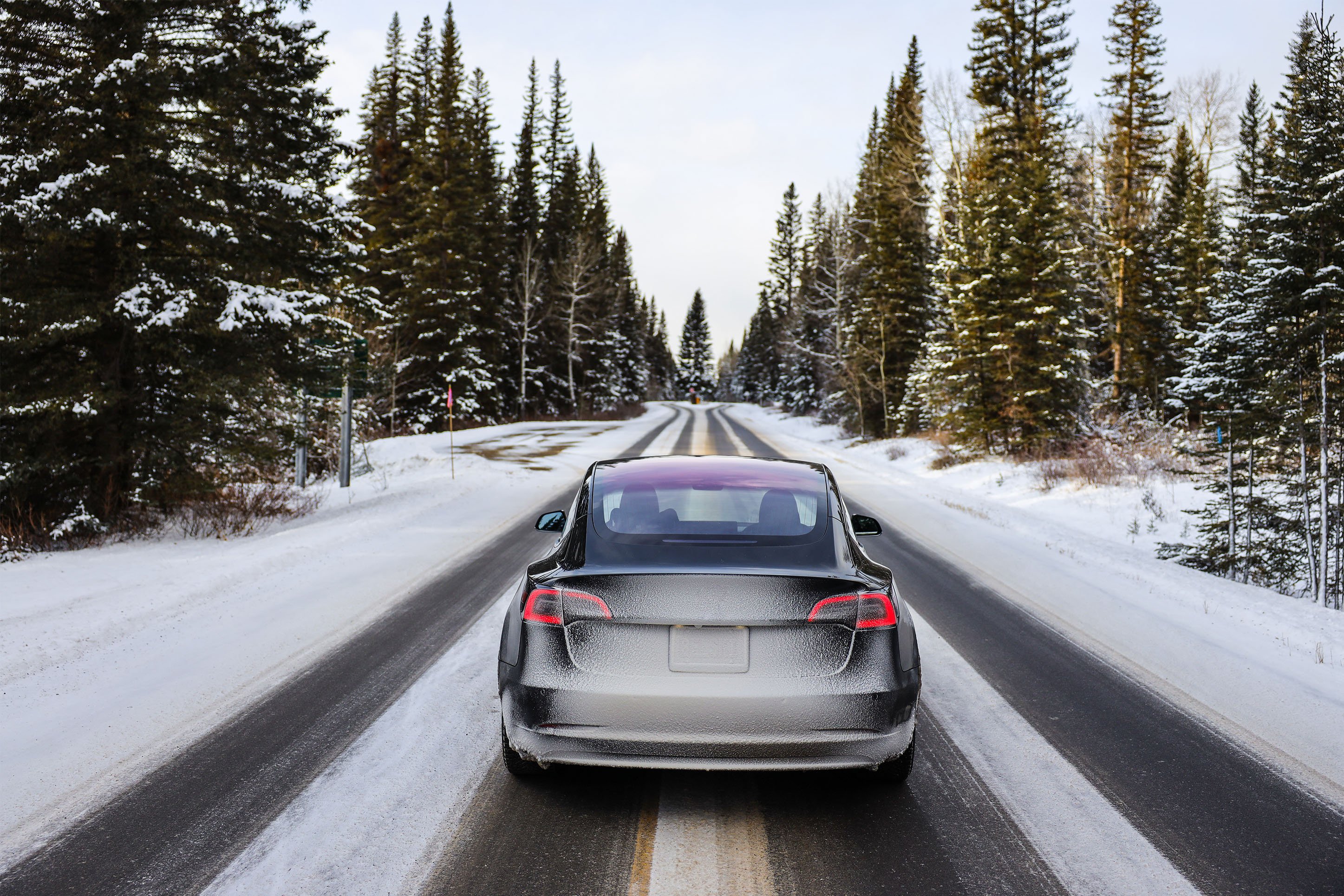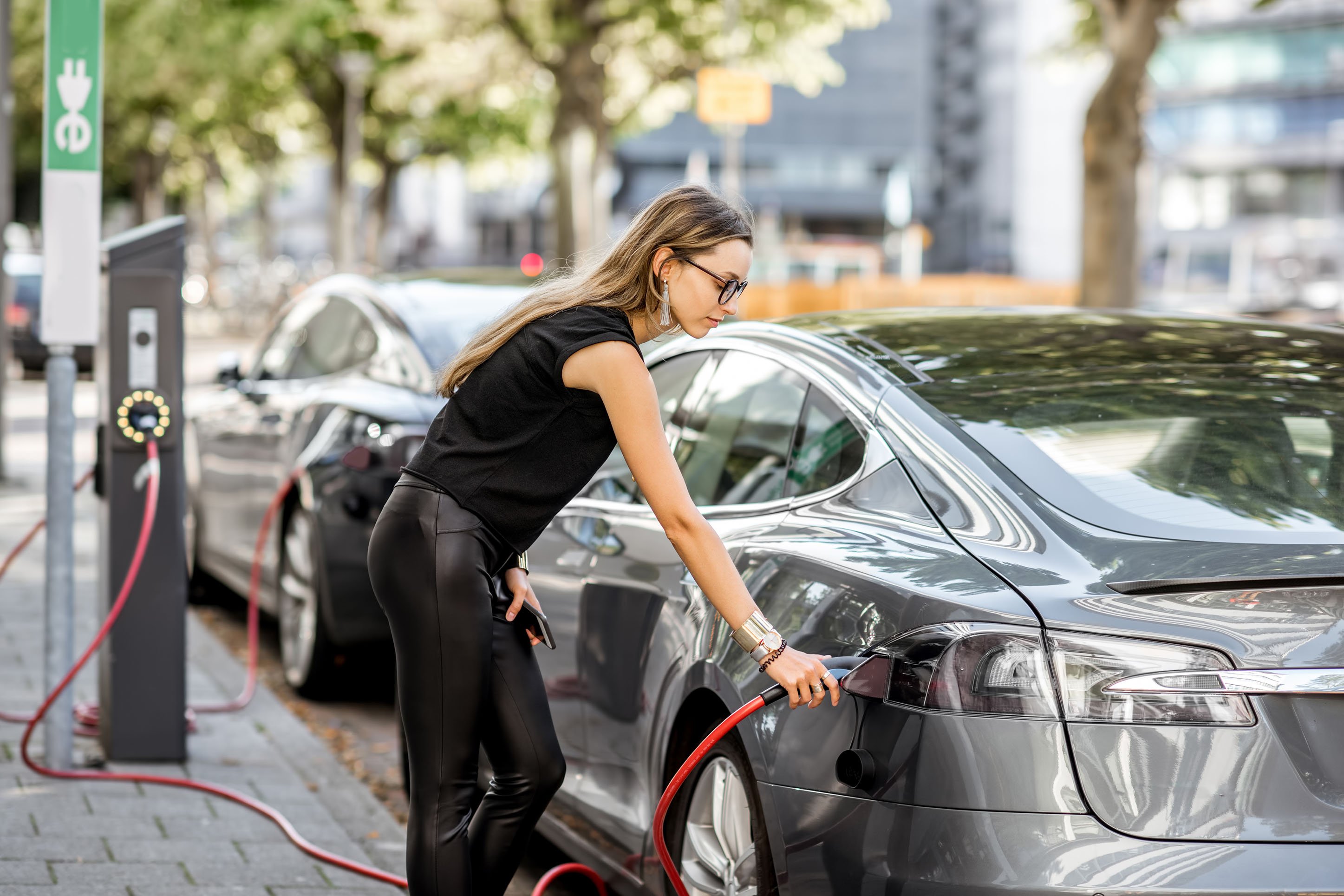Upfront costs
It’s true that right now, electric vehicles tend to be more expensive to purchase than their gasoline counterparts. But there are a few ways that those costs come down a bit, which we’ll get into in just a minute. For now, look at Hyundai—the gas-powered Kona starts at $21,990, while the electric version, the Kona Electric, starts at $34,000. That’s $12,010 more right out of the gate. But the long-term saving is where electric vehicles shine.
Long term costs
Though the ticket price tends to be more expensive on EVs than comparable gasoline cars, electric autos make up for it in savings down the line. Using an equation called MPGe, or miles per gallon equivalent, we can compare the cost between gas and electric cars at the proverbial pump. Looking at the Kona again, the gas version gets 32 MPG, an average of $1800 in annual fuel costs. On the other hand, the electric version gets 120 MPGe, for an estimated annual fuel cost of $550. And electric vehicles typically have much lower maintenance costs than gas cars.

EV incentives
You can cut many upfront costs with specific government incentives supporting EV purchases. Certain electric and plug-in hybrid vehicles purchased new in or after 2010 can receive a tax credit up to $7,500. That’s enough to bring the higher cost of new electric vehicles just about down to the price of comparable gasoline cars. And for the first time in 2022, there’s also a credit up to $4,000 for used EVs.
Costs of owning an EV in Montana
There are a few potential costs unique to owning an EV in Montana that you’ll want to think about. Looking at the Hyundai Kona example again, the gas model has a range of up to 422 miles on a tank. The electric version looks at a maximum of 258 miles on a charge. With charging stations not as common in Montana as in some states, that could pose a problem on certain road trips. And EVs tend to get lower battery life in cold winter temps, especially when you’re blasting the heat or cranking the seat warmers.

But you might not have an issue if you have an EV charger set up in your home garage and use your car mostly from home within its range. Plus, with a tax credit toward installation of renewable energy solutions like home solar panels, you might be able to reduce the cost of charging your car even further.
Ultimately, the total cost and savings of buying an EV will depend on you and your situation. But when the time comes for your next car purchase, whether EV or gasoline, RMCU has your back with affordable financing options. Get your application going for your next vehicle, and find your future ride.



